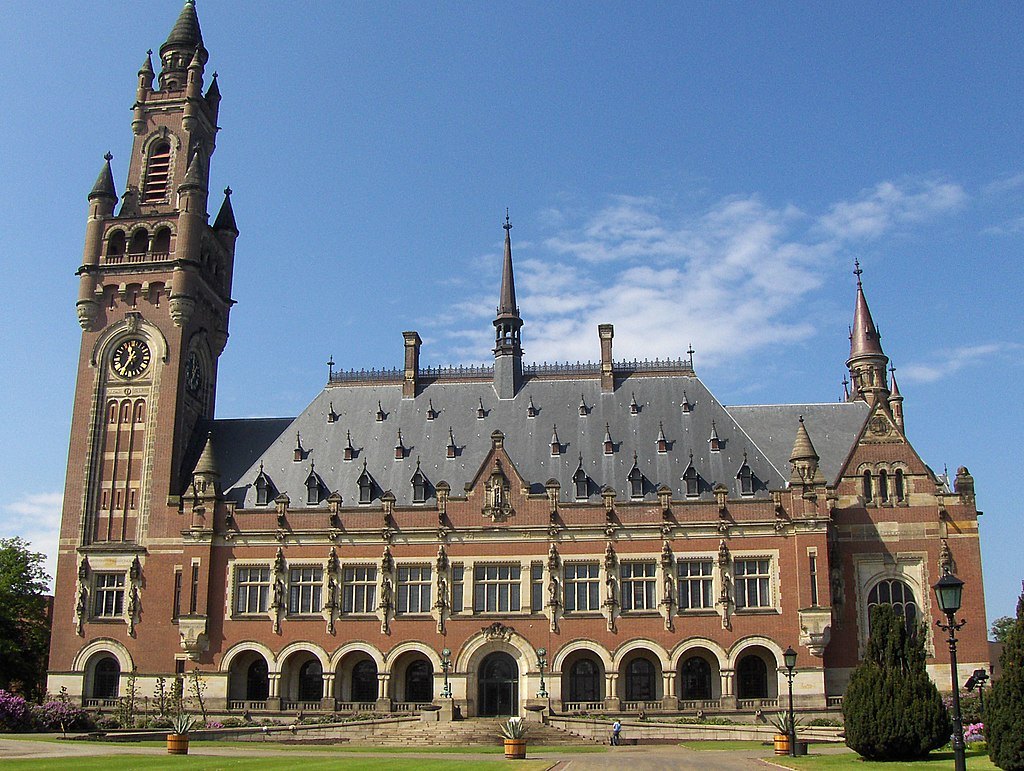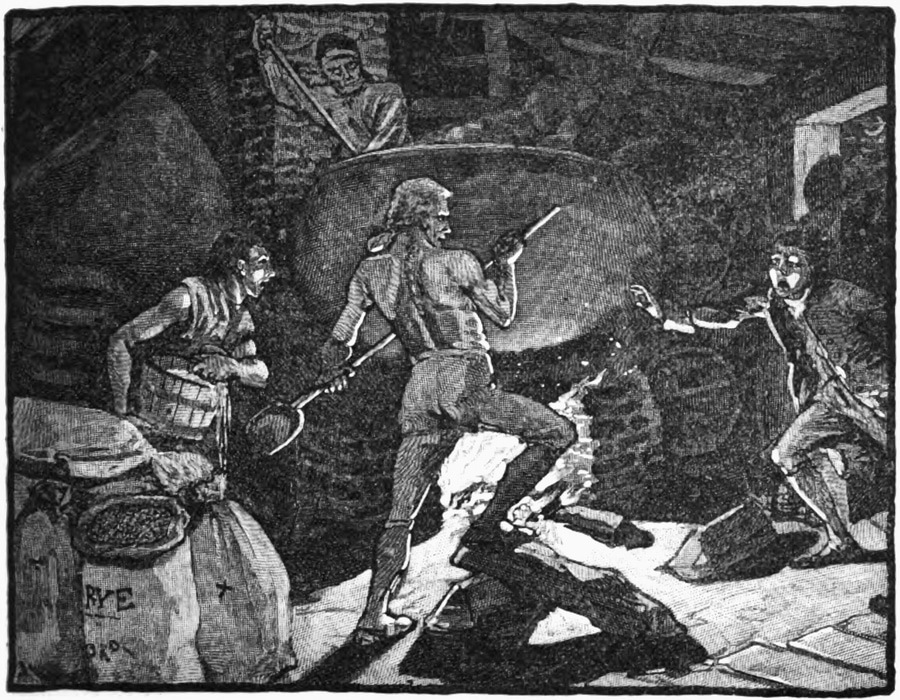The Travel Ban and Presidential Power
With the Supreme Court scheduled to hear oral argument on April 25 in Trump v. Hawaii, now is a good time to consider the government’s reliance on the president’s Article II power as a legal justification for the third iteration of President Trump’s travel ban.
Published by The Lawfare Institute
in Cooperation With

With the Supreme Court scheduled to hear oral argument on April 25 in Trump v. Hawaii, now is a good time to consider the government’s reliance on the president’s Article II power as a legal justification for the third iteration of President Trump’s travel ban.
In both its initial brief and its reply to Hawaii’s arguments, the government invokes Article II and a statutory provision: 8 USC § 1182(f). Asserting that Article II provides “broad authority” for President Trump’s action, the government cites the Cold War Supreme court decision, United States ex rel. Knauff v. Shaughnessy (1950) (see Josh Blackman’s extended analysis). But Knauff cannot bear the weight the government places on it—as immigration law scholars explain in an amicus brief filed in Trump v Hawaii on the history of the Immigration and Nationality Act, in which I served as co-counsel with Shoba Wadhia of Penn State and WilmerHale’s Alan Schoenfeld, Ben Gifford, and Francisco Unger. Justice Sherman Minton’s opinion was hardly a model of clarity; it drew dissents from justices Felix Frankfurter and Robert Jackson. Indeed, the current court has viewed Knauff as establishing Congress’s power over immigration, not the president’s.
Ellen Knauff was a refugee of the second world war from Czechoslovakia who, according to the Supreme Court, served “efficiently and honorably” with the Royal Air Force and then performed well-regarded work for the U.S. War Department in Germany. In 1948, with the approval of the U.S. general in command in Frankfurt, she married a U.S. veteran. As the spouse of a U.S. citizen, Knauff was eligible for an immigrant visa; Congress had enacted the War Brides Act to facilitate the entry of foreign spouses of U.S. service members. Shortly thereafter, Knauff sought to enter the U.S. to become a naturalized U.S. citizen.
But the U.S. government had other plans, based on concerns—eventually proven to be unfounded—that Knauff was a spy for the Communist regime in Prague. It denied Knauff entry to the U.S., refused her request for a hearing, and refused to provide evidence of its charges to anyone, including the Supreme Court. As legal authority, the government relied not on Article II, but on a predecessor to the modern 8 USC § 1185(a)(1) and accompanying regulations, which authorized the president to deny entry to a foreign national “prejudicial to the interests of the United States.”
As recounted in the amicus brief on the history of the INA, the 1941 provision on which the government relied to exclude Knauff was narrow in scope. After members of Congress complained that the wording of the bill proposed by the Roosevelt administration seemed broad, executive branch officials and their allies in Congress explained that President Roosevelt sought only narrowly tailored authority to exclude spies, saboteurs, and agents of hostile foreign powers who could pose a threat in the months preceding America’s entry into World War II. Thus mollified, Congress passed the legislation; Roosevelt-era regulations tracked these limits.
In Knauff, Justice Minton found that the decision regarding the petitioner fell within the discretion that Congress had duly delegated to the executive branch regarding spies and saboteurs. The court observed that Congress’s delegation of power was in no way “inappropriate” and that Congress had “lawfully placed” the decision to allow entry with the president. Minton mused that in delegating this authority, Congress had acted not only pursuant to its own Article I authority, but was also “implementing an inherent executive power” (Justice Neil Gorsuch echoed this thought in his recent concurrence in Sessions v. Dimaya, writing that in foreign relations the president “enjoys considerable constitutional authority,” while further noting that the president’s authority did not save the removal provision at issue in that case from unconstitutional vagueness).
However, Minton diligently conjoined the executive’s role with the power of Congress.
Describing the ambit of Congress’s authority, Minton asserted in Knauff that “Congress may in broad terms authorize the executive” to make decisions about entry “in the best interests of the country.” In support of this proposition, Minton cited another congressional delegation case, Lichter v. United States, which upheld a statute authorizing the executive to recover “excessive profits” from wartime defense contractors. In the statute at issue in Lichter, Congress did not define what it meant by “excessive profits.” Minton quoted a passage in Lichter that affirmed the legality of delegations to the executive branch to implement “[s]tandards prescribed by Congress.” In other words, Minton’s reference to “inherent executive power” was a small island in a sea of allusions to congressional authority.
Even more tellingly for purposes of the challenge to the travel ban, the passage from Lichter that Minton quoted in Knauff also indicated that “statutory context” constrains the scope of Congress’s delegation. Under this reasoning, the statutory authority to exclude suspected spies and saboteurs invoked in Knauff might well counsel deference to executive branch determinations, but a different statutory context might produce a less deferential result.
Even in Knauff, divergent views of the statutory context led to pointed dissents from two of the Supreme Court’s greatest justices: Frankfurter—among the court’s greatest champions of judicial restraint—and Jackson, soon to author the canonical Youngstown v. Ohio concurrence that has since guided separation-of-powers jurisprudence in national security cases. For both Frankfurter and Jackson, the War Brides Act was a material part of the statutory landscape, counseling limits on uncabined executive authority. Congress enacted the War Brides Act to temper the national-origin quotas then in effect, which would have greatly hindered U.S. veterans seeking to unite their families in the United States.
Frankfurter asserted that the War Brides Act weakened the case for deferring to the “mere say-so” of an executive branch official, especially when even a minimal hearing would allow the U.S. citizen spouse to soundly rebut the government’s choices. Wielding a meticulous approach to statutory interpretation that had long been one of the justice’s hallmarks, Frankfurter cited the War Brides Act as demonstrating Congress’s respect for the “dominant regard which American society places upon the family.” Allowing the fruits of that regard to be “arbitrarily … taken away” by government fiat would read a remedial statute in a carelessly “decimating spirit.” According to Frankfurter, courts should avoid such a mechanical reading unless “the letter of Congress is inexorable.”
Jackson, with the support ofd Frankfurter and the great civil libertarian Hugo Black, also argued against reading the statute to permit the “abrupt and brutal exclusion of the wife of an American citizen without a hearing.” Rejecting such a stark reading, Jackson would have required “more explicit language” from Congress to authorize the “break up [of] the family of an American citizen … without notice of charges … [or] evidence of guilt.”
Subsequent developments vindicated Frankfurter’s and Jackson’s positions. After members of Congress proposed private bills that would have remedied Knauff’s predicament on a “one-off” basis, the attorney general agreed to provide Knauff with the administrative hearing she and her husband sought. A Justice Department hearing officer found that the government’s charges against Knauff were the product of rumor, innuendo, and mistake. Knauff was allowed to become a lawful permanent resident of the United States.
The Supreme Court’s subsequent treatment of Knauff has suggested that a narrow interpretation of that decision is most fitting. In the last forty years, citations to Knauff in majority opinions or concurrences have been sparing. The only recent example is Justice Anthony Kennedy’s concurrence in Kerry v. Din, which cites Knauff in support of Congress’s “plenary power” over entry into the United States. The court has never elaborated on the view of executive power in Minton’s opinion.
As our amicus brief demonstrates, the “context” of the INA today demonstrates even more firmly than the War Brides Act in Knauff that deference to the executive branch must have limits. That context includes the 1965 immigration amendments’ elevation of family unity to the “foremost” priority of immigration law. It also includes Congress’s 1965 abolition of national-origin quotas and enactment of 8 USC § 1152(a)(1)(A), which bars discrimination in the issuance of immigrant visas. As our brief describes, one factor that drove Congress to abolish national-origin quotas was the constant need for what President Dwight Eisenhower had called an “avalanche” of private bills tempering the quota system’s harshness. Having resorted to that tactic to assist Ellen Knauff and thousands of others, Congress understood well the wastefulness of this piecemeal approach to immigration legislation and the need for a more streamlined way forward. Relegating those subject to Trump’s travel ban to the episodic arcana of private bills would have struck Congress in 1965 as exactly the sort of situation that it wished to remedy.
The “context” of Trump’s travel ban also includes the past practice of U.S. presidents, who limited efforts to exclude foreign nationals to identifiable individuals accused of specific conduct—such as Knauff’s alleged spying or, more recently, human rights violations in Kosovo or Burma—or to responses to exigent national security matters, such as the Iran hostage crisis or the aftermath of the Cuban Mariel boatlift. Even the broadest of such orders contained exemptions for the close relatives of U.S. citizens or legal permanent residents far in excess of the most recent travel ban’s meager provision for waivers. Viewed against that backdrop, the ban rests on claims of uncabined executive authority that do not match Congress’s plan. Finding such boundless authority in the modern Immigration and Nationality Act would require a clearer statement than the language that Congress has provided.
In sum, the government’s claims of Article II authority do not survive an encounter with case law or with past practice. Even assuming that Congress recognized in the president some ability to exclude particular individuals such as Ellen Knauff, precedent does not support a sweeping power to summarily exclude entire countries’ immigrants. The logic of Knauff, the backdrop of the INA, and past practice cast decisive doubt on those justifications for the travel ban.


.jpg?sfvrsn=8253205e_5)


